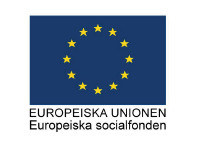projektinmating
A good connection between employment and education begins with speaking the same language. The EU Skills Agenda helps. By co-developing ECVET units of learning outcomes with industry and education partners, and embedding generic, professional and social-emotional skills, employers will gain a better understanding of the skills of their current employees and graduates who enter the labour market.
The skill sets required in both old and new occupations will transform how and where people work. This means:
- the creation of additional jobs e.g. in pollution control;
- substitution of employment e.g. in the shift from fossil fuels to renewable energy;
- elimination of jobs e.g. in the manufacturing or packaging materials;
- transformation of existing jobs e.g. through the greening of profiles and working methods.
The importance of generic skills and social-emotional skills such as persuasion, creativity and emotional intelligence will increase compared to specific professional skills. It is expected that in 2025 many professional skills will no longer be performed by people due to the fourth industrial revolution. Social skills are less likely to be taken over by machines and will help workers to move between sectors. This is particularly important for the 68 million people in the European Union with skills on lower and middle EQF levels.
By involving both business partners and VET providers in the development and implementation of ECVET units of learning outcomes, the project aims to provide more opportunities for work-based learning in all its forms. The premise of this project is that learners should be able to use the ECVET units outside the school, in a professional
situation. The project partners support this idea and will take this into account when developing and implementing units of learning outcomes.
After completion of the project, all participating organizations will continue utilizing the units of learning outcomes for the mobility of students in a carousel of partner schools. The units can be used in the context of lifelong learning, both by the VET institutions and businesses concerned.
The employability of students at lower and medium EQF levels is increasing through ECVET units of learning outcomes because they acquire skills needed by the industry and relevant for several professions, (including entrepreneurial behaviour). Students may also easier get employed abroad because the learning outcomes are also recognized in other countries, and because students have improved their language skills and strengthened their generic, professional and social-emotional skills after completing one or more ECVET units abroad.
The employability and labour mobility of workers in the green sector at at lower and medium EQF levels have increased by describing how (by what methods) skills that are acquired through informal or non-formal learning, can be recognized and validated. The international cooperation between carousel partners will improve, as will utilizing each other's expertise.
The planned outcomes (products/results) for this project are:
- A common and unambiguous framework that all partners will use to create units of learning outcomes that are based on ECVET principles and the European Skills Agenda.
- Selection and establishment of assessment methodologies. Applicable assessment methodologies that are based on the outcome-based assessments as developed in previous European projects.
- ECVET units of learning outcomes on EQF levels 2, 3 and 4 for at least three different profiles
(branches), and based on the framework as described at O1.
- A training programme for the assessors of the ECVET units of learning outcomes.
- Training of potential assessors among the education and business partners.
Results of the pilot with students and employees to test the ECVET units of learning outcomes. Recommendations for adjustments and optimization of the ECVET units and assessments based on the results of the pilot tests. All project partners, representing both business and education, will organize and implement a multiplier event in their home country.
DE LA CONSERVA (Spain)
